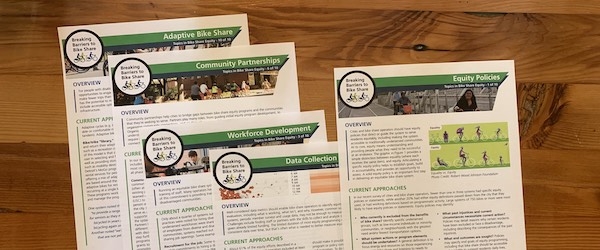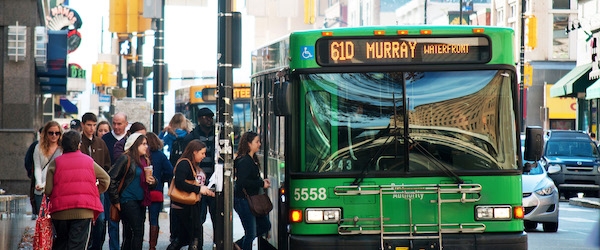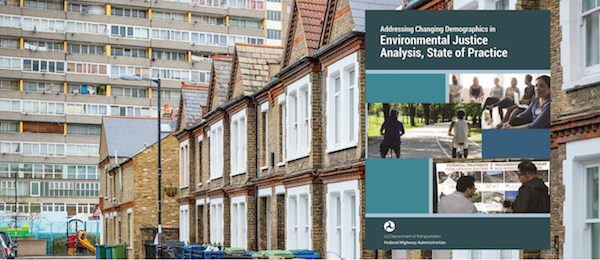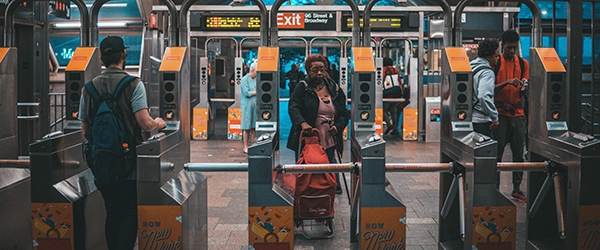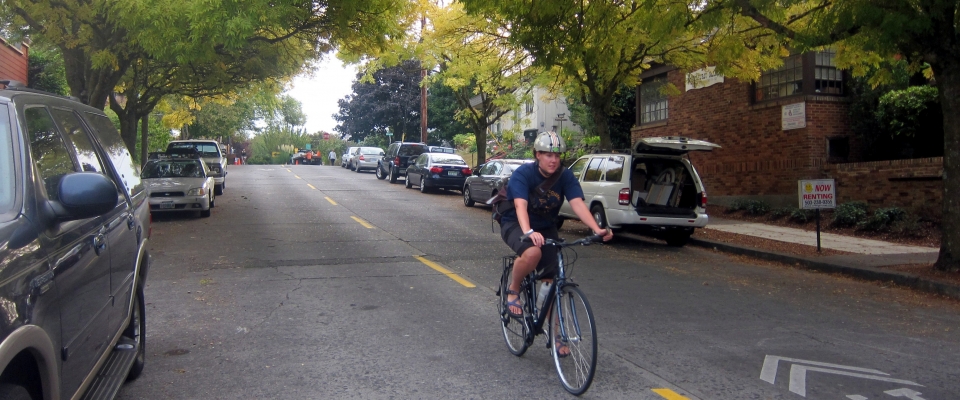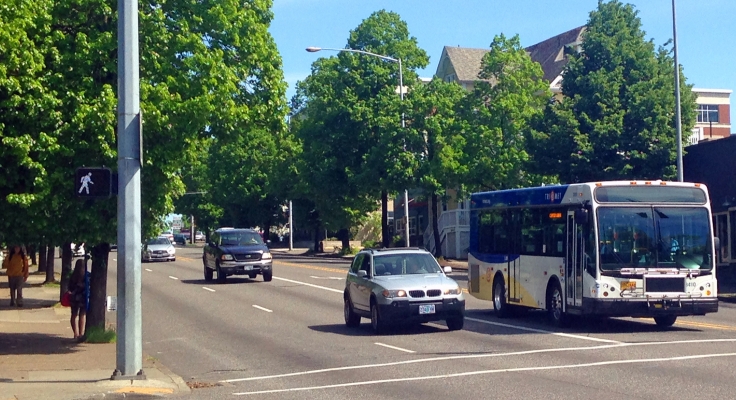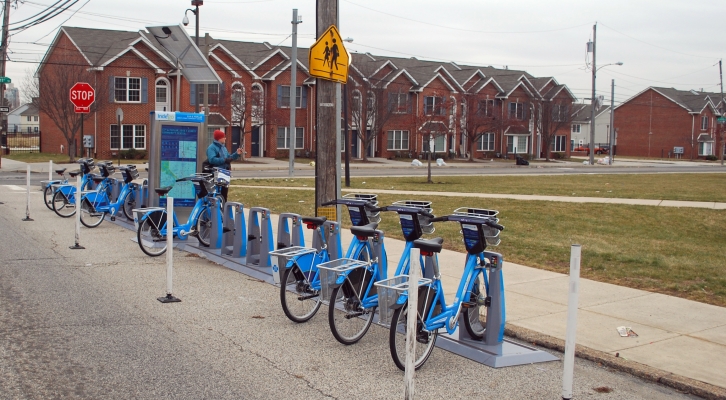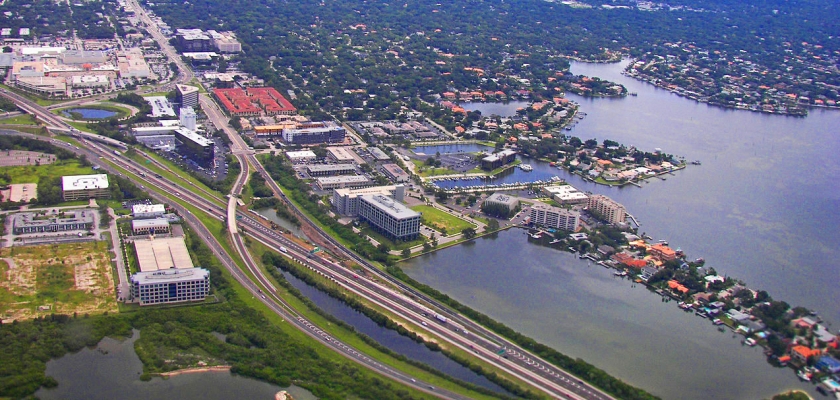Last year, Portland State University’s Transportation Research and Education Center (TREC) released a 130 page evaluation comparing equity-oriented programs from over 70 U.S. bike share systems across the U.S. Bike share being a relative newcomer to the transportation system, the research team was not surprised to find that approaches to equity programs ranged widely. In the latest installment, funded by the Better...
Read moreImage by Luije/iStock
Authored by Aaron Golub Director and Associate Professor, Nohad A. Toulan School of Urban Studies and Planning at Portland State University. Join Aaron and John MacArthur on May 22nd for a PSU Friday Transportation Seminar sharing early results from the research presented here.
With many transit agencies across the country1 eliminating cash handling at ticket counters and on-board vehicles for obvious health and virus transmission reasons, one may wonder: who will be negatively impacted by this?
Some riders can still use cash at ticket vending machines or at certain retail outlets, but for many, depending on where they live and which parts of the transit system they ride, this will be inconvenient. National data2 show clear disparities3 in access to alternatives to cash (credit and debit accounts) as well as the other tools needed to pay for things electronically (smartphones, cell data plans and internet at...
Read moreAmy Lubitow and Julius McGee, Portland State University; Raoul Liévanos, University of Oregon
- Download the Final Report (PDF)
- Download the Project Brief (PDF)
- Hear from the researcher—Register to attend the TCS2019 session "Fair and Accurate Data: Equity-informed Approach to Representation"
What is the quality of travel data for...
Read moreThis week, Portland State University’s Transportation Research and Education Center (TREC) releases a new research report comparing equity-oriented programs across several U.S. bike share systems. The research finds a variety of methods in place, ranging from affordability to internal hiring practices and beyond. The report is assisted by Toole Design...
Read moreSince 1994, every Federal agency must develop a strategy for addressing “environmental justice” (EJ) – the disproportionately adverse human health or environmental effects on low-income and minority populations (sometimes called “EJ Populations”). In transportation planning this means including those communities' voices in the planning process, and evaluating the social impacts early on in the planning and project development process.
But what happens if EJ Populations move or grow during the sometimes decade-long project development process?
"If you're in a community that is changing, can you rely on forecasting to look ahead and have a detailed view of EJ impacts into the...
Read moreAs transit agencies modernize their fare payment systems, opportunities to pay with cash diminish. This speeds boarding and lowers the cost of operations, while also creating new sources of ridership data. Arguably, service is improved for riders as well, where payment systems work across modes, and in some cases different transit providers, creating a more seamless and simplified experience. Still, about 15% of adults in the United States are without a bank account or credit card, and many rely on restrictive cell-phone data plans or don’t have access to a smartphone. These shares are even higher for public transit users. As transit fare technologies move further from cash, these digitally-excluded riders will find it more difficult to conveniently pay their transit fares.
In the latest project to be funded under the National Institute for Transportation and Communities (NITC)'s Pooled Fund grant program, researchers from...
Read morePortland, Oregon's 2035 Comprehensive Plan calls for “City Greenways” - a citywide network of park-like streets focused on moving pedestrians and bicycles safely. Such a connected network of safe, welcoming active transportation options could have significant benefits for residents—but which residents?
Benefits of bike and pedestrian infrastructure include environmentally sustainable transportation, livability, and improvements in economic development and public health. While these outcomes are well documented, it is also known that both transportation and...
Read moreAlso check out this series of articles about the project from our partners at Better Bike Share Partnership:
- Researchers investigate where to look next in bike share studies
- Study from Portland shows untapped potential for bike share
- Bike share study shows need for infrastructure is clearer than ever
- Study looks at price and incentives to get low-income residents on bike share
Evidence has...
Read moreA NITC study took a look at how metropolitan planning organizations, or MPOs, can better serve transportation-disadvantaged and historically marginalized populations when creating regional transportation plans.
The transportation disadvantaged are those unable to drive or who lack access to an automobile, and may include the elderly, low income, young people, persons with disabilities, and those with permanent or temporary health conditions. Historically marginalized communities are often left out of the planning process and include many of the same groups but also ethnic and racial minorities.
A new freeway, with all its attendant air and noise pollution, might cut through a part of town where low-income and minority populations are concentrated. Bike lanes sometimes wait to make an appearance until a neighborhood has begun to gentrify. People over the age of 60, as well as people of color, are at greater risk of being killed by a car while walking. Low-income neighborhoods often have poor access to regional transportation networks, making getting to and from work and other destinations a challenge for residents. English language proficiency is a barrier to participating in the transportation planning process and is also recognized as a dimension of transportation disadvantage.
To address problems like this, equity needs to be a priority in every regional transportation planning process. The report, ...
Read more
